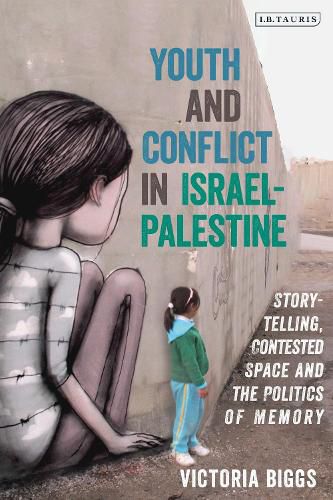Readings Newsletter
Become a Readings Member to make your shopping experience even easier.
Sign in or sign up for free!
You’re not far away from qualifying for FREE standard shipping within Australia
You’ve qualified for FREE standard shipping within Australia
The cart is loading…






How are forbidden histories told and transmitted among young people in Israel/Palestine? What can their stories teach us about their everyday experiences of segregation and political violence? This book investigates how young people use storytelling to navigate borders, memory, and unseen spaces, and to confront questions of belonging and those they see as the ‘other’. The study is unique in its inclusion of children from a broad spectrum of communities, including Palestinian refugee camps and right-wing Israeli settlement homes. The book shows that boundary spaces are fertile ground for the transmission of forbidden stories and memories. Young people are at the centre of the research and Victoria Biggs argues that storytelling reveals much more about their experiences and perceptions than either quantitative data or qualitative interviews. Through analysis of the language, metaphor, violence, and endings employed in the stories, storytelling is shown to be a political act that plays a vital role in shaping conflict-affected young people’s concepts of community, exclusion, and belonging.
$9.00 standard shipping within Australia
FREE standard shipping within Australia for orders over $100.00
Express & International shipping calculated at checkout
How are forbidden histories told and transmitted among young people in Israel/Palestine? What can their stories teach us about their everyday experiences of segregation and political violence? This book investigates how young people use storytelling to navigate borders, memory, and unseen spaces, and to confront questions of belonging and those they see as the ‘other’. The study is unique in its inclusion of children from a broad spectrum of communities, including Palestinian refugee camps and right-wing Israeli settlement homes. The book shows that boundary spaces are fertile ground for the transmission of forbidden stories and memories. Young people are at the centre of the research and Victoria Biggs argues that storytelling reveals much more about their experiences and perceptions than either quantitative data or qualitative interviews. Through analysis of the language, metaphor, violence, and endings employed in the stories, storytelling is shown to be a political act that plays a vital role in shaping conflict-affected young people’s concepts of community, exclusion, and belonging.